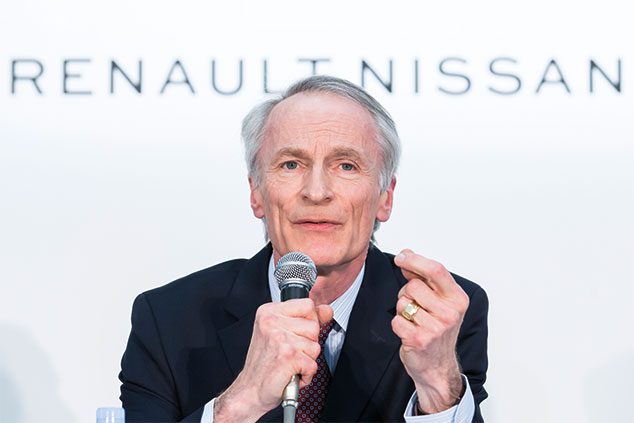
The car industry is going through its biggest changes “for 125 years” as the age of internal combustion draws to a close, writes Larry Elliott in The Guardian. That is forcing companies fearful of becoming “museum pieces” into ever- larger combinations. Italian-American carmaker Fiat Chrysler Automobiles (FCA) confirmed on Monday that it is seeking a merger with French peer Renault. The tie-up would create the world’s third-biggest carmaker, or the largest if Renault partner Nissan’s production is included. Shares in both companies shot up by more than 16% on news of the talks.
A Fiat Chrysler and Renault merger looks good on paper
FCA doesn’t say “merger of equals”, but that is what’s on offer, says Stephen Wilmot in The Wall Street Journal. The plan is for a 50:50 merger of each firm’s share capital, so that €5bn in anticipated cost savings can be shared equally. The move is “very sensible” at a time when car sales are stagnating in the US, China and the EU.
The deal looks wise on paper, agrees The Economist. The threat from Silicon Valley has created an urgent need for investment in technologies such as electric vehicles (EVs) and self-driving cars. Industry consolidation avoids that expensive work being duplicated pointlessly. Joint development of engines and platforms – the base component of a vehicle – will also make a big contribution to the mooted €5bn a year in savings. The two firms also complement one another geographically, with FCA strong in America, and Renault’s power base in Europe.
The history of car mega-mergers is not a happy one, notes John Gapper in the Financial Times. The FCA-Renault tie-up is almost the same size as the industry’s “worst deal failure” – Daimler’s $37bn combination with Chrysler in 1998, which was eventually dissolved in 2007 “to everyone’s relief”. Yet the decision to pursue a full merger rather than a looser alliance could prove canny. As last year’s downfall of former Renault-Nissan-Mitsubishi alliance boss Carlos Ghosn attests, “alliances that look solid to outsiders often conceal unresolved tensions”. It is far harder to unravel a merger.
Ghosn’s downfall, as well as the untimely death of FCA boss Sergio Marchionne last year, actually cleared the way to a deal, says Wilmot. Mergers of equals are usually derailed by ego, but plans for Renault’s low-key chairman Jean-Dominique Senard to become CEO would help to keep the proposed behemoth on an even keel.
The planned deal leaves Renault’s Japanese alliance partner Nissan “in a bind”, says The New York Times. Renault executives reportedly kept Nissan boss Hiroto Saikawa “in the dark” about the talks, a slight which will only aggravate Franco-Japanese tensions. Renault and Nissan have too many joint plans for the future of their alliance to be in doubt, reports Julien Bonnet for France’s BFMTV. Nevertheless, the FCA merger plan is “not a positive” for Japan’s second-biggest carmaker, says TIW analyst Satoru Takada. As its partner bulks up, Nissan’s position in the alliance “will be diminished”.
Britain’s ten most-hated shares
These are the UK’s ten most unpopular firms, based on the percentage of stock being shorted (the “short interest”). Short-sellers aim to profit from falling prices, so it helps to see what they’re betting against.
The list can also highlight stocks that may bounce on unexpected good news when short-sellers are forced out of their positions. Levels of short interest in miner Anglo American have fallen sharply after a surge in iron ore prices. Sentiment has turned against educational publisher Pearson after two of its biggest rivals, Cengage and McGraw-Hill Education, agreed an all-share merger deal earlier this month.